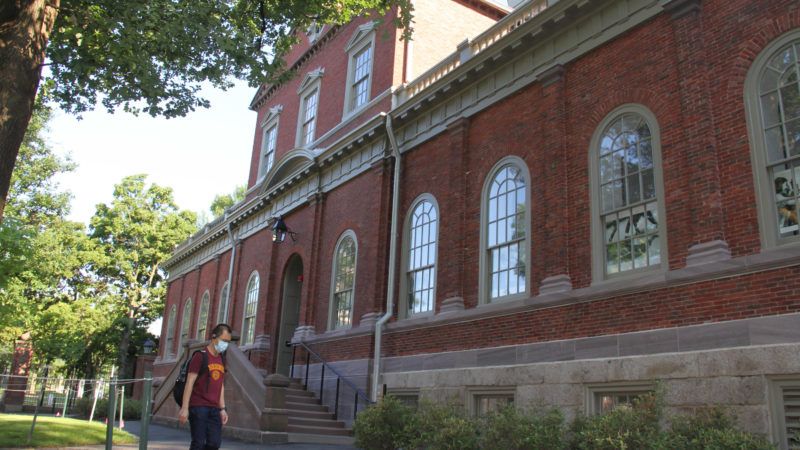First-Year International Students Will Not Be Permitted To Enter the U.S. if Their University Went Remote
Immigration and Customs Enforcement removed similar guidance for students already in the country. It will still apply to new students.

Immigration and Customs Enforcement (ICE) last month issued and revoked a rule that would have forced international students to leave the country if they were attending a university that went fully remote as a response to COVID-19. Largely lost in the discussion post-revocation is that first-year international students will still be forbidden from studying in the United States if their schools have pivoted to online instruction.
The Trump administration's change of course "does not apply to our newly admitted international students who require F-1 sponsorship," wrote Harvard College Dean Rakesh Khurana in an email to students. "At present, any incoming student who received a Form I-20 to begin their studies this fall will be unable to enter the U.S. in F-1 status as course instruction is fully remote."
"We abhor any policies that seek to force us to choose between our community's health and the education of our international students," he continued, adding that while the school is working to ensure that first-year international students receive the same treatment as others, he does not "anticipate any change to the policy in time for the fall semester."
The policy does indeed pit coronavirus-related safety measures against immigration rules for no apparent reason. As I wrote last month about the original ICE order:
The White House directive came absent any economic or security justification for giving foreign students the boot, though some have speculated it was part of an effort to pressure colleges to reopen. President Donald Trump, as well as Education Secretary Betsy DeVos, have strongly advocated for school openings across the U.S. Others wondered if the directive was more of a strategic political maneuver, designed to appease a restrictionist base and bolster Trump's reelection chances.
Harvard is by no means the only university left scrambling to concoct a plan for international students who will now have to find a way to keep up with instruction from several thousand miles away. The federal government's actions are creating needless challenges for those in different time zones and for those who lack the necessary resources to effectively participate in remote education.


Show Comments (111)